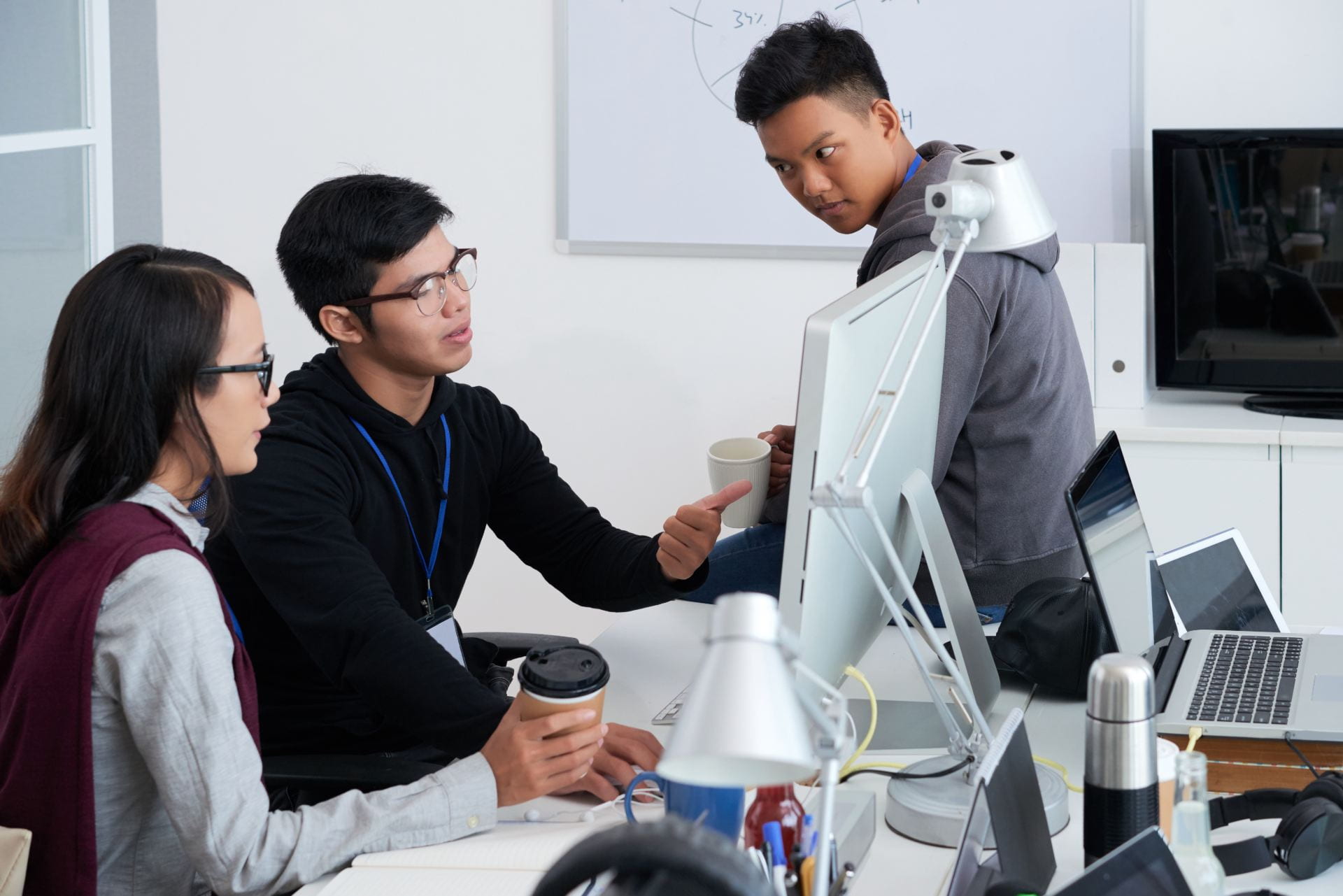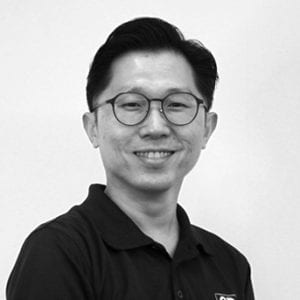LEE Li Neng
Department of Psychology, Faculty of Arts & Social Sciences (FASS), NUS
Centre for Development of Teaching & Learning (CDTL), NUS
NUS Teaching Academy
Li Neng takes us through the initiatives NUS has organised to foster AI literacy among the student and faculty community in NUS.
This post is featured in a Special issue on “Navigating Generative AI in Higher Education”, where academic developers in Singapore’s institutions of higher learning discuss how they are working with their student and faculty colleagues to effectively engage with and navigate GenAI in teaching and learning.

Image by pressfoto on Freepik
Lee, L. N. (2024, January 30). Navigating uncharted frontiers with generative AI in NUS: Embracing uncertainty with prudent optimism. Teaching Connections. https://blog.nus.edu.sg/teachingconnections/2024/01/30/navigating-uncharted-frontiers-with-generative-ai-in-nus-embracing-uncertainty-with-prudent-optimism/
OpenAI’s release of ChatGPT, along with other tools like DALL-E and Midjourney, sparked excitement, curiosity, and some trepidation in the educational landscape due to the transformative potential of generative artificial intelligence (generative AI, or GenAI).
Educators at the National University of Singapore (NUS) faced a flurry of questions regarding the appropriate use of GenAI. Can and should GenAI be used in higher education? How should it be used? How does it affect teaching and learning?
Creating a Culture of Prudent Optimism
The NUS leadership swiftly established the University Policy workgroup for AI in Teaching and Learning, which produced the “Interim Policy for the Use of AI in Teaching and Learning” on January 30, 2023. This policy fostered a culture of prudent optimism, encouraging GenAI exploration while highlighting the need for careful calibration by educators for specific contexts.
This created an environment of openness that mitigated the rise of a culture of fear. Educators and students who were exploring and using GenAI felt a palpable sense of relief, while educators who were on the fence felt encouraged to explore integrating GenAI into their pedagogical practices.
Dispelling Myths: The Need for Holistic Community Engagements and Ground-up Initiatives
Engagements, ranging from small discipline-specific workshops to local and regional conferences and large public engagements, by the NUS Teaching Academy (NUSTA) uncovered a great disparity in terms of AI literacy and myths of AI capabilities. Simultaneously, the NUS Centre for Development of Teaching and Learning (CDTL) organised various initiatives to support faculty’s engagement with GenAI1.
We realised that engagements to create AI literacy need to be both holistic yet highly sensitive to contextual boundaries such as disciplines. While large-scale engagements are crucial to raise awareness, discipline-specific engagements were more effective at demonstrating GenAI capabilities in that specific context, a key to raising AI literacy and dispelling myths.
Resistance vs Substitution
To address concerns about academic dishonesty
One initial proposal was to shift the focus to higher-order thinking skills and create assessments that GenAI do not perform well in (i.e., AI-resistant assessments). However, there are pitfalls to this. First, AI-resistance is a rapidly moving target with GenAI advances possibly making AI-resistance obsolete in a matter of months. Second, evidence is emerging that making assessments AI-resistant at lower level courses also raises the difficulty level so high that the majority of students are not able to pass, resulting in a mismatch between the intended learning outcomes of lower-level courses.
Another approach suggested is to use AI-detector tools to prevent students from using GenAI to cheat on assessments. However, it has emerged that these detectors have a significant false positive rate (Hendrik Kirchner et al., 2023). Thus, reliance on these detectors then raises the possibility of unjust accusations of GenAI use, potentially leading to mistrust between educators and students.
To address unequal distribution of use among students
Many educators assume that students were going to primarily use GenAI as a substitute for their efforts and thus, undermine their learning process.
Underperforming students are more likely to rely on GenAI as their AI literacy increases. In contrast, high-performing students are less likely to use GenAI as they perceive such use as undermining their performance on assessments. These unequal distributions may be a result of different expectations and beliefs of GenAI abilities and use. Furthermore, students with more resources at their disposal can get access to higher-performing GenAI models, while students with less have to settle with the free version (e.g., ChatGPT 4.0 Premium vs. ChatGPT 3.5, which is free), resulting in increasing inequalities.
Hence, increasing AI literacy and increasing accessibility for students have been mooted as potential solutions. However, such approaches come with their own risks, such as increasing the susceptibility of risks associated with data privacy and data security. An early step that NUS has taken to increase accessibility without compromising on security is the release of NUSChat by NUS Information Technology (NUS IT), a chatbot that is based on ChatGPT but has focused on addressing security concerns.
Moving from Preventive/Substitutive to Augmentative Uses of GenAI
A more fruitful approach is to move towards augmentative uses of GenAI, where educators encourage students to use GenAI to augment their existing abilities to learn better. NUS colleagues are now documenting that students are using GenAI in different ways, many of which are not intended to cheat but actually enhance their learning. This approach inculcates a culture of openness and trust, of which educators can serve as the critical shapers of the norms of use.
Conclusion
Educators’ critical role in shaping the norms of use of GenAI
In the current exploratory phase, educators and students can potentially co-create the norms of ethical use to reap the benefits of GenAI while mitigating the negative externalities. Educators can help shape these norms as expert learners, who are better able to identify any potential costs of using GenAI. This is also the time for educators to collaborate and share innovative ways of integrating GenAI into their pedagogy, such as through the NUS AI Community of Practice2.
Final thoughts
In hindsight, it is evident that the integration of GenAI in NUS has been a testament to the culture of prudent optimism, where openness and trust were engendered between educators and students, while not remaining naïve to the various challenges and issues. We hope that the various collaborations forged have laid the foundation for the next chapter in the educational landscape for higher education.
Endnotes
- The initiatives by CDTL included the following: supporting the formation of Learning Communities to understand GenAI issues in higher education through the Teaching Enhancement Grant (TEG); organising the Higher Education Campus Conference (HECC) 2023 with a special focus on exploring how GenAI is used in the campus, and sharing with colleagues through the Teaching Connections blogposts about faculty’s efforts to integrate GenAI in their own teaching.
- The NUS AI Community-in-Practice is an online platform which curates and shares use-cases of GenAI applications in teaching and learning from NUS faculty across various disciplines.
Reference
Hendrik Kirchner, J., Ahmad, L., Aaronson, S., & Leike, J. (2023, January 31). New AI classifier for indicating AI-written text. OpenAI. https://openai.com/blog/new-ai-classifier-for-indicating-ai-written-text
|
|
LEE Li Neng is an Associate Director at CDTL, a Senior Lecturer in the Department of Psychology, and a Fellow in the NUS Teaching Academy. A psychologist by training, he is interested in educational innovation and exploring ways to inculcate curiosity, creativity and critical thinking. He has also partnered with non-profit organisations to drive and evaluate both educational projects in several developing countries, and would love to have conversations with others on any of the above. Li Neng can be reached at psylln@nus.edu.sg. |


